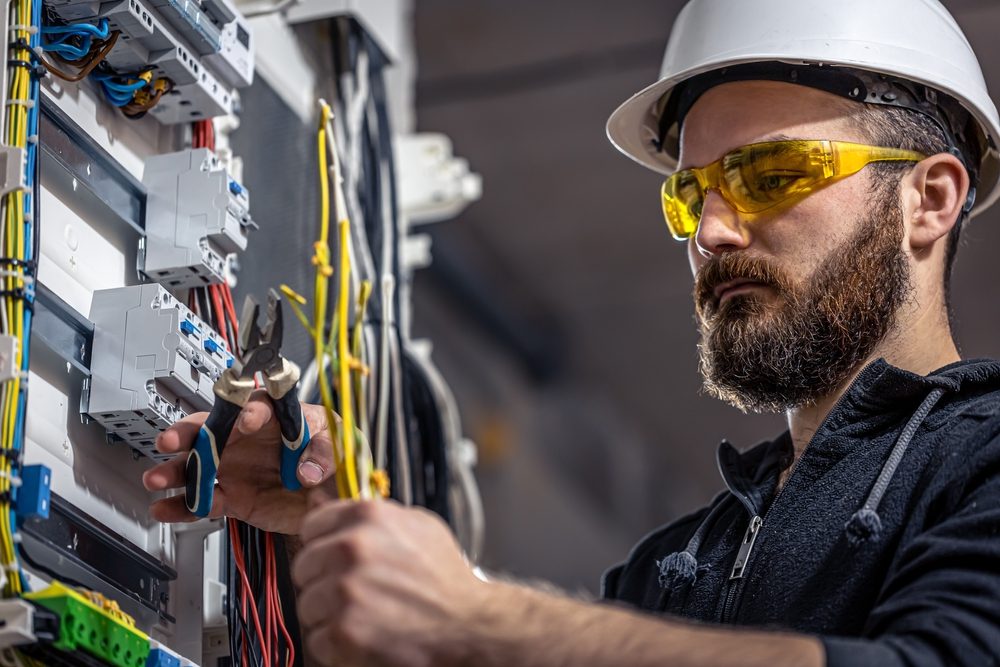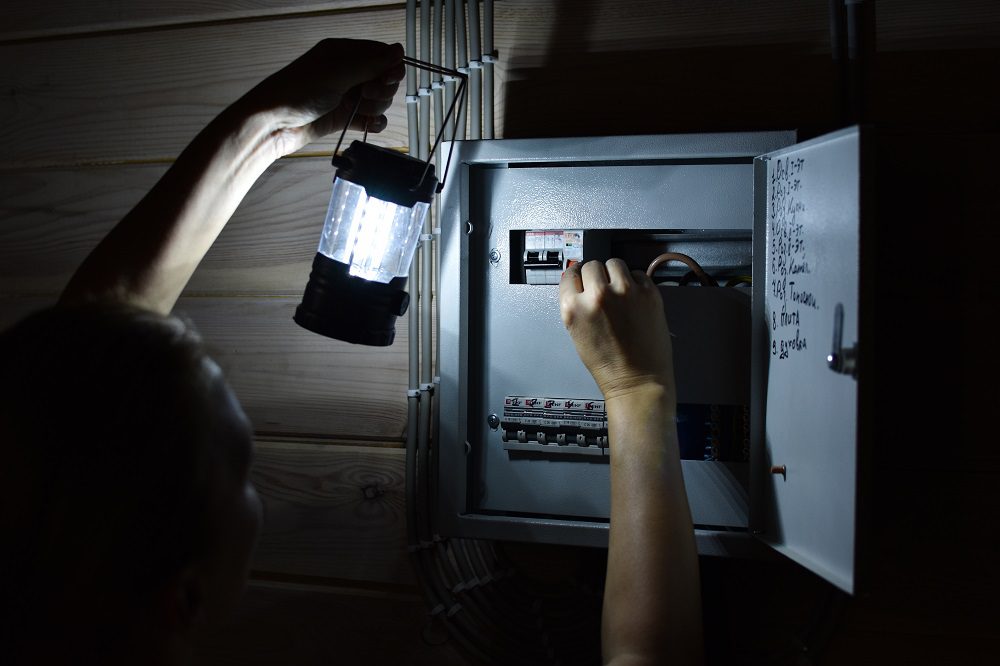
Why Charlotte Homes Need Wiring Upgrades More Often Than You Think
Charlotte grows fast, and so do the power demands inside its homes. Older neighborhoods like Dilworth, Plaza Midwood, and Elizabeth have beautiful structure and charm, but many still rely on wiring that predates modern appliances. Even homes from the 1990s in Ballantyne or Highland Creek can feel strained by today’s loads. This is why electrical wiring upgrades in Charlotte, NC are not a luxury. They are a practical response to real usage, weather, and safety factors that stack up in this market.
The local factors Charlotte homeowners overlook
Heat and humidity work against aging insulation. Summer moisture seeps into crawlspaces in Sedgefield and Madison Park. Over decades, it dries and re-wets, and wire jackets get brittle. Add attic heat in Ranch-style homes in Cotswold and you see more cracked insulation near fixtures. That small crack invites arcing or a nuisance trip that gets worse over time.
Heavy storms add stress. Lightning does not need a direct strike to cause trouble. A nearby hit can spike voltage and damage weak points in older runs, especially long circuits to detached garages in SouthPark or Providence Plantation. The grid is robust, but brownouts and quick flickers can push older breakers and aluminum terminations past their comfort zone.
Then there is load creep. A typical 1970s Charlotte house was built for about 60 to 100 amps of real daily demand. Now a family might run two HVAC systems, a double wall oven, an induction range, a Tesla charger, four TVs, gaming PCs, and a backyard spa. The service might be 200 amps on paper, but branch circuits often remain original. That mismatch is where tripped breakers, warm outlets, or dimming during microwave use start.
Signs your Charlotte home wiring is past its prime
Look for patterns rather than single events. A one-time trip can be a fluke. Repetition points to wiring or load issues.

- Lights dim or flicker when large appliances start, especially on the same floor or room circuit.
- Outlets feel warm to the touch, or you notice a faint hot or fishy smell near receptacles or switches.
- Two-prong outlets still exist in parts of the home, or you see fabric-sheathed cable or knob-and-tube in crawlspaces or attics.
- Breakers trip after a hair dryer and space heater run together, or a microwave trips the same breaker weekly.
- GFCI or AFCI breakers nuisance trip in specific rooms, or you get shocks from metal appliances.
If these show up in older homes in Myers Park, Wesley Heights, or NoDa, the wiring likely dates from an era with different expectations.
Where codes and reality meet in Charlotte
Charlotte follows the North Carolina Electrical Code, based on the National Electrical Code. Code changes often tighten safety in kitchens, baths, laundries, garages, exterior areas, and bedrooms. AFCI and GFCI requirements expanded. Many older homes meet the rules that existed at the time of construction but fall short of current safety standards. That does not mean a home is unsafe by default, but it increases risk and insurance scrutiny.
Permits matter. The City of Charlotte and Mecklenburg County require permits and inspections for service upgrades, new circuits, and most rewires. This protects the homeowner and keeps resale smooth. Good contractors plan around inspection schedules to keep projects moving.
Common wiring issues seen across Charlotte
In 1950s bungalows near Camp North End, cloth-insulated cable and ungrounded receptacles are frequent. In 1960s–1970s ranch homes in Montclaire and Sherwood Forest, aluminum branch wiring sometimes shows up. Aluminum needs the right devices and anti-oxidant compounds at terminations. Mixed copper-aluminum splices without rated connectors cause heat buildup.
In 1980s–1990s builds across University City and Steele Creek, backstabbed receptacles and overloaded multi-outlet circuits are common. The device may pass a quick test but runs hot under load. Older panels from certain brands have known performance issues. A service upgrade with a modern panel and AFCI/GFCI protection often solves a long list of nuisances at once.
Garages and bonus rooms converted into living spaces often run off the nearest available circuit. Space heaters, mini-splits, and freezers share the same run, which invites trips and voltage drop. Detached studios in Villa Heights or Belmont sometimes rely on undersized feeders. Proper subpanels and dedicated circuits raise both safety and usability.
Why upgrades payoff is higher here
The Charlotte market rewards safe, modern electrical systems. Buyers ask about EV charging, dedicated circuits for home offices, and whole-home surge protection. A panel upgrade with room for future circuits can reduce appraisal friction and speed a sale in competitive neighborhoods. Insurance carriers sometimes flag older panels, aluminum branch wiring, or knob-and-tube during underwriting. Proactive corrections can lower premiums or prevent cancellations.
Energy savings come from right-sizing circuits and eliminating heat loss at weak connections. An induction range or heat pump performs better on clean, dedicated wiring. Smart home devices hold steady on circuits with fewer voltage dips. The intangible gain is comfort: fewer trips to the panel and fewer flickers during storms.
What a responsible upgrade looks like
A good contractor starts with a load calculation, a visual inspection, and targeted testing. The aim is to replace what is unsafe, preserve what is sound, and expand for planned loads. For many Charlotte homes, the sequence that works best is: panel and service upgrade, kitchen and laundry circuits, bathroom upgrades with GFCI/AFCI protection, then high-use general lighting circuits. Crawlspace and attic runs get special attention due to heat and moisture.
Expect mapping of circuits, labeling, and documentation. During a rewire, holes can be small and strategic in plaster or drywall. In brick homes in Chantilly or Eastover, surface-mount raceways in utility areas can reduce wall repair. Timelines vary by scope. A panel change can be a day with utility coordination. A whole-house rewire in a 2,000-square-foot home can run three to seven days depending on access and finish-level.
Real examples from Charlotte jobs
In Madison Park, a 1963 ranch had frequent fridge and microwave trips. The kitchen shared a 15-amp circuit with the dining room. The fix included two 20-amp small appliance circuits, GFCI protection, and a new AFCI/GFCI breaker. The nuisance trips stopped, and countertop outlets stayed cool under heavy cooking.
In Plaza Midwood, a craftsman still had a mix of cloth cable and two-prong outlets. The homeowner wanted an EV charger and a backyard studio. Ewing Electric Co. upgraded the service to 200 amps, installed a subpanel in the studio with a properly sized feeder, and rewired the living areas for grounded receptacles. The project was phased to keep one room live while others were updated.
In Ballantyne, a 1998 home added a sauna and an induction cooktop. The panel was full, and tandem breakers pushed thermal limits. A new panel with higher capacity and dedicated circuits solved breaker heat issues and stabilized lighting during sauna heat cycles.


The cost ranges and what drives them
Budgets depend on access, finishes, and scope. A panel upgrade in Charlotte usually falls within a mid-four-figure range depending on amperage and brand, with permits and electrical wiring Charlotte NC surge protection included. Adding dedicated kitchen circuits can be a smaller add-on if crawlspace access is clear. A full rewire of a typical 1,800 to 2,400-square-foot home can extend into five figures, with plaster repair and attic work as the swing factors. Homes with lathe-and-plaster or limited attic space take more time. Electric vehicle charging circuits vary by charger amperage and panel space.
Straight answers help planning. A site visit allows a firm quote and a phasing plan to keep key rooms operating.
Safety upgrades that matter in Charlotte homes
Arc-fault protection in bedrooms and living areas catches dangerous arcing from worn cords, loose connections, or damaged conductors behind walls. Ground-fault protection in kitchens, baths, laundry, garages, and outdoors protects against shock in wet areas. Whole-home surge protection guards electronics and HVAC boards from spikes during storms. Proper bonding and grounding, including water and gas bonds, prevent external voltage from lingering on metal systems. These are simple measures with large impact, especially across neighborhoods with mature trees and active storm seasons.
Maintenance habits that extend wiring life
Two quick habits keep trouble away:
- Test GFCI and AFCI devices twice a year and replace any that fail to trip or reset.
- Avoid daisy-chaining power strips and relocate loads to dedicated circuits when possible.
Annual or biannual panel checks catch loose lugs, heat discoloration, and weak breakers. Replacing worn cords, using correct wattage bulbs, and keeping attic junctions accessible reduce heat and fire risk. If an outlet or switch plate feels warm without a heavy load, it needs attention.
How to choose the right electrician for electrical wiring in Charlotte, NC
Look for a licensed, insured contractor who pulls permits and can explain code requirements in plain language. Local experience matters. Charlotte homes have specific patterns by era and neighborhood. Ask for a written scope, brand names for panels and breakers, and a clear plan for patching. Confirm cleanup standards, daily timelines, and how many circuits will be offline at a time. A good team protects floors, isolates dust, and communicates around school and work schedules.
Ewing Electric Co. serves Charlotte and nearby towns with wiring upgrades, panel changes, EV charging circuits, and whole-home surge protection. The team plans projects around real household routines, keeps inspectors in the loop, and documents every circuit for easy future service.
Ready to make your home safer and more reliable?
If the lights dip when the dryer starts, if two-prong outlets linger in key rooms, or if a new EV charger sits on hold, it is time to talk. Ewing Electric Co. can assess your electrical wiring in Charlotte, NC, explain the options, and build a plan that fits your home and schedule. Call to schedule an assessment, or request a visit online. A stronger, safer electrical system is a practical upgrade that pays off every day you live in the home.
Ewing Electric Co provides dependable residential and commercial electrical services in Charlotte, NC. Family-owned for over 35 years, we handle electrical panel upgrades, EV charger installation, generator installation, whole-home rewiring, and 24/7 emergency repairs. Our licensed electricians deliver code-compliant, energy-efficient solutions with honest pricing and careful workmanship. From quick home fixes to full commercial installations, we’re known for reliable service done right the first time. Proudly serving Charlotte, Matthews, Mint Hill, and nearby communities. Ewing Electric Co
7316 Wallace Rd STE D Phone: (704) 804-3320 Website:
https://ewingelectricco.com/ |
Electric Company in Charlotte
Social:
Facebook |
Instagram |
Twitter |
LinkedIn |
Yelp |
Angi |
BBB
Map: View on Google Maps
Charlotte,
NC
28212,
USA